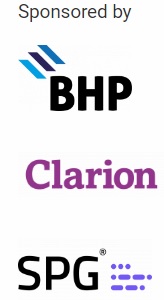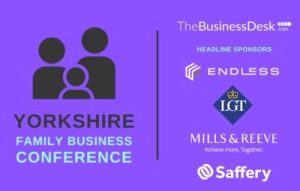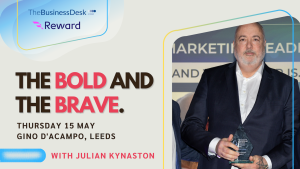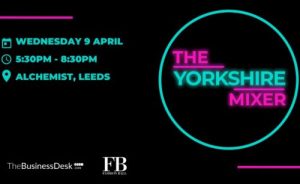Disruptors: The Growth Journey – Technology

Almost every day there is a new AI tool which is offering more possibilities on how our working day and working world can and will be transformed.
How should businesses embrace emerging and fast-evolving technologies, and what is the risk of waiting for the technology to mature?
And how are businesses already embracing the power of AI to disrupt their markets and get ahead of their competition?
Looking to answer some of these questions was a panel of experts at TheBusinessDesk.com’s Disruptors conference, hosted by Nexus in Leeds and sponsored by BHP, Clarion and SPG.
The panel, chaired by our Yorkshire region editor Andrew Staples, included Sherin Mathew of AI TECH UK, Saile Villegas, of SEEAI and Pete Hanlon of MoneyPenny.
Mathew pointed out that despite the excitement surrounding AI, its usage in the British business world is currently far from universal.
“Only 15% of UK businesses have adopted some form of AI, so the opportunities are huge,” he said. “There is a lot of potential but the risk is huge as well.
“AI is like using a very powerful power tool. We need to balance it with humanity and we need to think about accountability from the start.”
He used the example of an AI legal chatbot, adding: “Is this to help lawyers or replace lawyers? AI should be used to augment people, not replace them.”
Hanlon said: “I don’t think I’ve ever before seen a technology like this that will have such an impact on businesses across the world.”
Agreeing with Mathew, he said the point of AI is to “supercharge” people, not replace them, explaining that AI is a tool rather than the complete answer to businesses problems.
He warned of the risk posed by AI “hallucinations” where the technology responds to a human query with a convincing sounding answer which is actually completely false.
Commenting on the large language model-based chatbot, ChatGPT, Hanlon said people who use it to generate text should still be held accountable for this text.
He said: “The AI is statistically working out the next most likely word or phrase. It simulates intelligence. It is statistics – not thinking for itself.”
Villegas suggested this is effectively like a “glorified auto complete”, noting: “We have to accept for now that the AI may fail, so keeping a human in the loop is important. AI is a very powerful tool but it’s not a magic wand.
“We should encourage people to use systems like ChatGPT so they understand how it works and realise what its limitations are.”
She said we are living at the cusp of a major technological change which could be as revolutionary as the Internet.
Villegas added her own company had started off using AI to detect bone fractures in X-Ray images, but has since expanded its use to help a variety of other industries.









